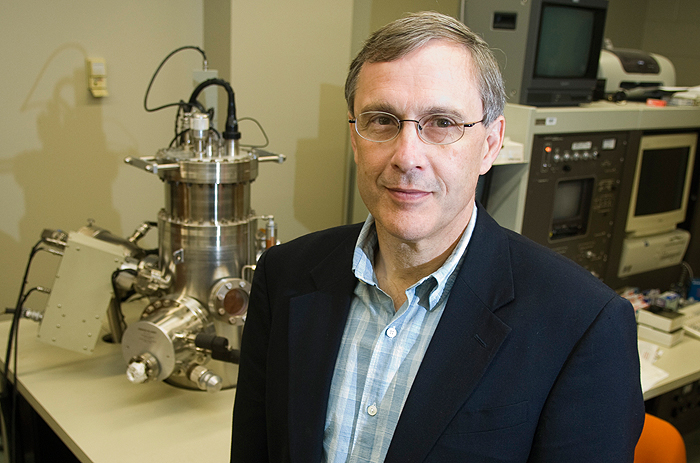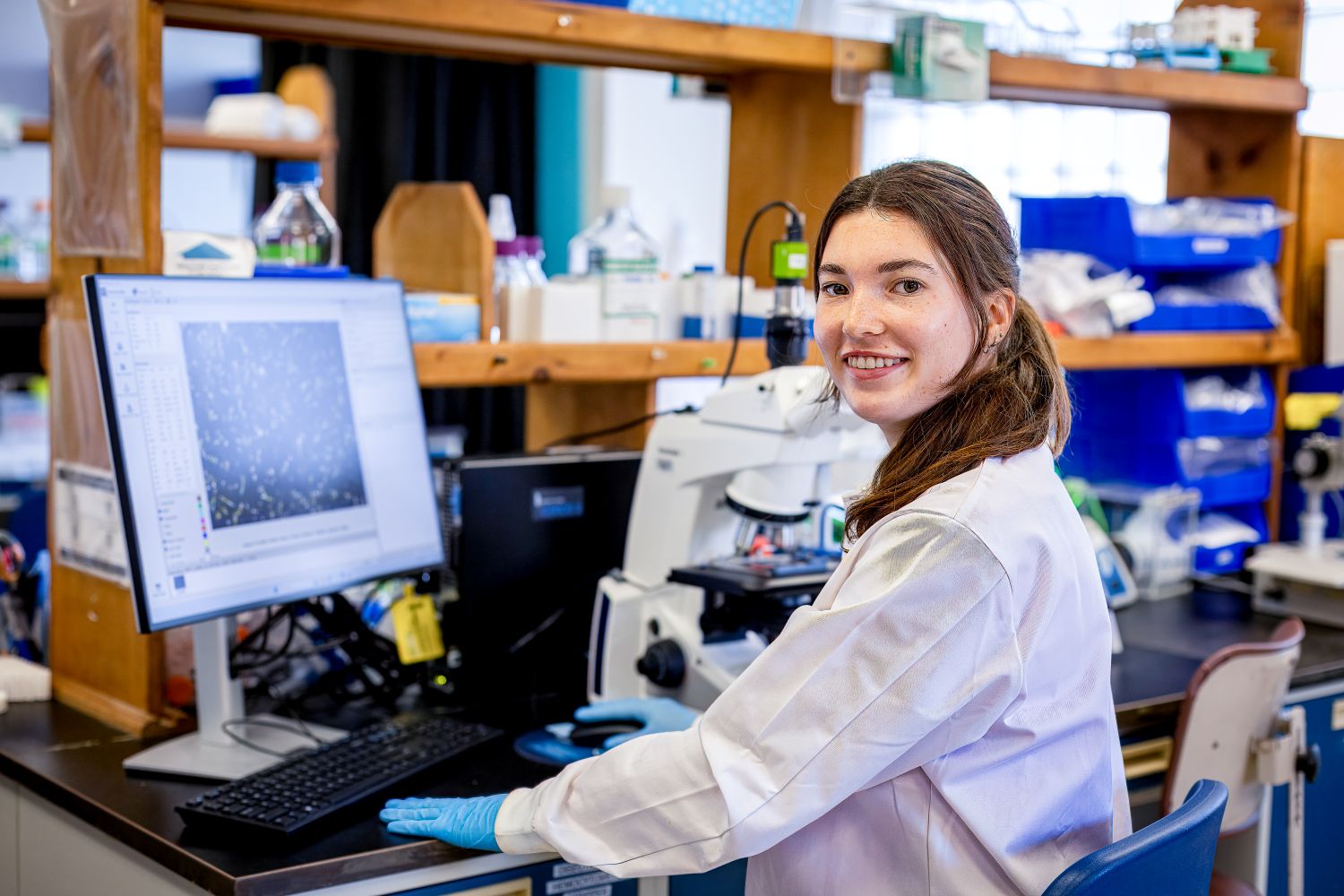
A new $1.8 million project with the Department of Energy led by chemistry professor Steve Suib will develop new biofuel sources, catalysts, and reactors that would be suitable for the Northeast.
The goal of the interdisciplinary project is to develop the technology to the stage where it could be transferred to small biofuel businesses that would use locally available resources for fuel.
This would eliminate one of the costs associated with biofuels – transporting the raw biomaterial to the site of the plant.
By developing new catalysts that can be used with different types of biofuels, and testing in a pilot plant a new fuel source of rapid-growth poplar trees that would thrive in this climate, the UConn researchers will demonstrate how bioenergy technology could be important in the Northeast region of the U.S.
As part of the project, an economic impact study will assess the technology’s viability.
To date, much of the biodiesel production in the U.S. has centered in the Midwest where soybeans are available as a fuel supply. Bioenergy developers are moving away from using food sources for fuel, however, and the DOE is funding projects around the country that will enable local biofuel markets to develop.
Connecticut alone has 8 million square feet of greenhouses that generate $1 billion in sales annually, the project proposal notes. If the greenhouses generated their heat through direct combustion of a locally produced wood such as poplar, it would reduce fossil fuel consumption by at least 10 million gallons per year in the state.
The project involves five faculty researchers in three schools on the Storrs campus.
Suib, department head and Board of Trustees Distinguished Professor of Chemistry in the College of Liberal Arts and Sciences, is developing catalysts that can be tailored to different types of biofuel operations. The liquid-based catalysts that are often used now are hard to separate from the product, among other problems, Suib says.
His lab is developing solid catalysts that won’t leach into the solution and that are stable, relatively cheap, and induce a high rate of reaction. They can be tailored to work best with the particular type of biofuel that is used – vegetable oil or plant materials, for example.
Yi Li, professor of horticultural biotechnology in the College of Agriculture and Natural Resources, will evaluate and genetically improve poplar trees, which grow rapidly for biofuel harvesting. The DOE has recommended the poplar as one of the best bioenergy crops for the Northeast. Li is head of the transgenic plant facility at UConn.
Richard Parnas, professor in the Institute of Materials Science and in the Department of Chemical, Materials, and Biomolecular Engineering, who has led a number of biodiesel studies, will scale up and build a pilot biodiesel plant, located near the Center for Environmental Sciences and Engineering at the back of Horsebarn Hill.
Xiusheng (Harrison) Yang, professor of natural resources and the environment in the College of Agriculture and Natural Resources and director of the Connecticut State Climate Center, will create an inventory of feedstocks, showing the location of available farmlands in Connecticut, what is grown there, and the availability of biomass (forests and agricultural residue) and land mass.
Fred Carstensen, professor of economics in the College of Liberal Arts and Sciences, will analyze the economic impact of the biofuels industry in Connecticut, current and potential. Carstensen is director of the Connecticut Center for Economic Analysis.
The project was contracted with the DOE in September for one year but may be extended an additional year.
Suib and Parnas have visited biofuel plants in Connecticut, New Jersey, Rhode Island, and Cape Cod. There is a lot of interest in the technology among small manufacturers, says Suib. They use a variety of fuels, all requiring different catalysts and different processes.
Suib also recently received a $500,000 extension on an earlier National Science Foundation grant to develop and commercialize biofuel catalysts.


